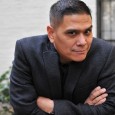AIDSWatch is the largest HIV federal constituent meeting with legislators in Washington, D.C. and brings hundreds of people living with HIV and our allies to meet with our elected officials. AIDS Watch has occurred annually for the past two decades. For the past four years, there has been a steady increase in the number of people who gather for AIDSWatch. This year, we are convening AIDSWatch March 31, 2019-April 2, 2019. Many of the United States People living with HIV Caucus and our organizational members will be there.
For the past four years, AIDSWatch has been a partnership between Treatment Access Expansion Project (TAEP), AIDS United and the United States People living with HIV Caucus. We each bring particular expertise and constituents to the table. Each year we learn from the previous, and try to make it better and more effective. Thanks to the leadership of AIDS United, we are able to disseminate 50 scholarships for people to attend, which has helped to greatly diversify the number of states that can be present at AIDSWatch.
AIDSWatch is a powerful convening. We might not agree on issues, we do not all have the same politics, but our voices need to be heard. Our legislators need to know that people living with HIV and our allies live in their jurisdiction, and they are accountable to us. In the recent attacks on the Affordable Care Act (ACA), people living with HIV made a stand alongside thousands of other people concerned about our healthcare to stop the attacks.
Each year, we see people speak to their legislators for the first time. Everyone has had the experience of one legislator or staffperson who really saw them and listened to them. Our experiences can move people when politics, religion and research have not.
I have worked at a few HIV organizations. In that time, I became a bit cynical about the power of our stories. I believed that research and data was what was necessary for social change. I did not see how important something like AIDSWatch can be for our movement. In my professional identity in the HIV industry, I thought I was somehow different from other people living with HIV. Now that I do not work in HIV, I see how flawed that position was. I now understand how important we are as a community: not as patients or consumers, but as vital and integral to envisioning and building a more just world.
I first met with the office of State Assemblyperson Brian Maeinschein as part of the Californians for HIV Criminalization Reform efforts to pass State Senate Bill 239. I was the “community” person in the room, alongside a public health expert and attorneys. Maeinschein’s staffer listened for a bit, then said to me “I’ve read the documents you sent. How does criminalization affect you?” It was my story that he was interested in, how does a constituent – one who is gay, a professor at a local university and very open about their HIV status – get impacted by HIV criminalization laws. “Anyone I meet could say I didn’t disclose my HIV-status, even if I did. It really is a ‘he said/he said’ thing,” I replied. After some discussion, the staffer said that he would take this to Maeinschein for his vote. We wanted Maeinschein to abstain from the vote (as he had done before), we could not have him vote “no.” He ended up supporting the bill in California Senate.
The lesson I learned from this was two-fold: to stay away from the view that we are all passive consumers of services, and to encourage more spaces where we as people living with HIV get a chance to effectively use our voices.
In her essay “Punks, Bulldaggers, and Welfare Queens”, Cathy Cohen asks us to consider “a politics organized not merely by reductive categories... but organized instead around a more intersectional analysis of who and what the enemy is and where our potential allies can be found.” I hope that the work we do at AIDSWatch helps build opportunities and conversations where this politic can be built.
AIDSWatch is March 31 – April 2, 2019. I hope that you’ll join us in the nation’s capital to push our agenda, celebrate our victories and strategize for our battles. If you cannot be in Washington, D.C., many states have their own statewide HIV capitol visits. Get involved!








Comments
Comments